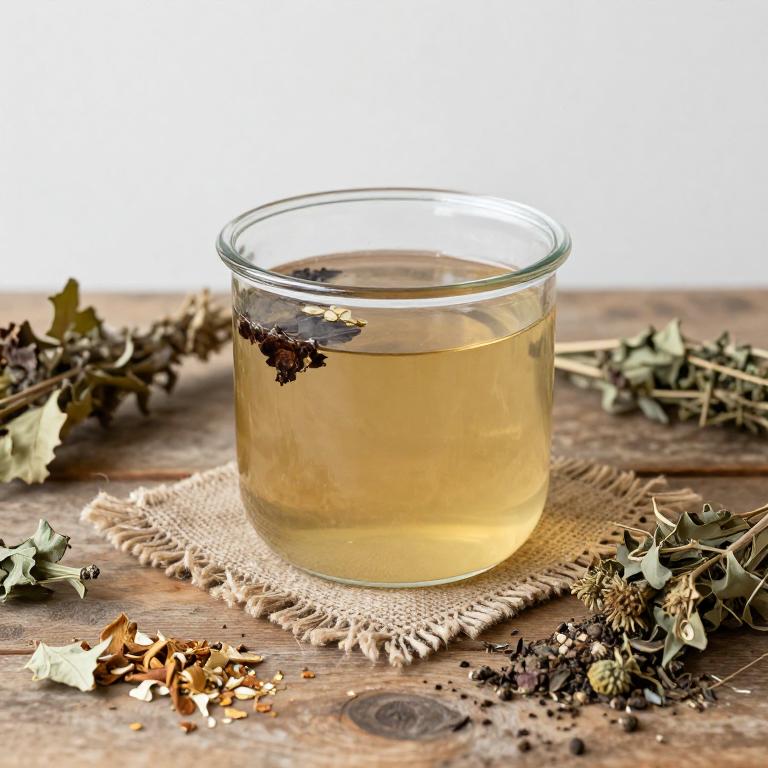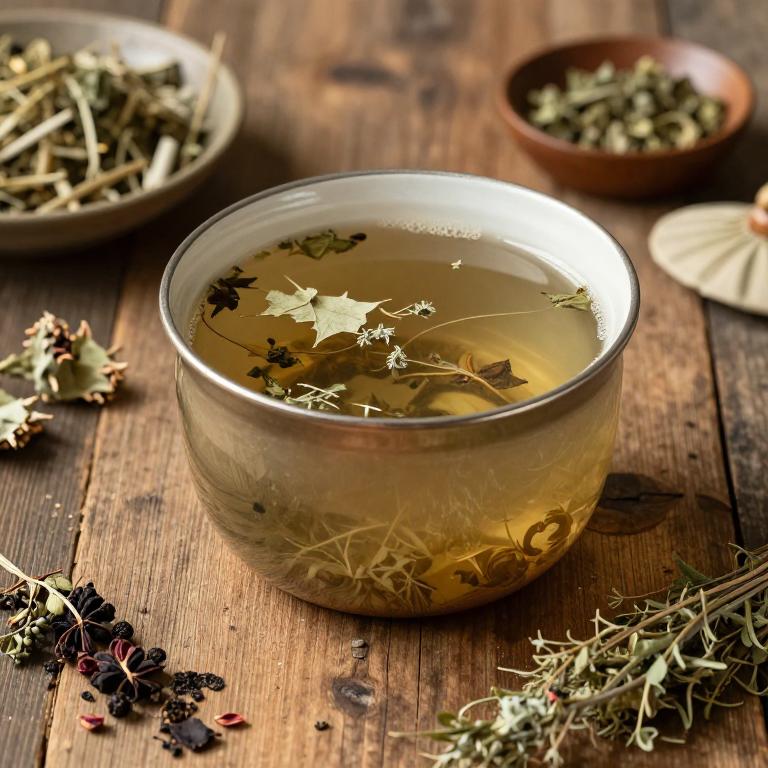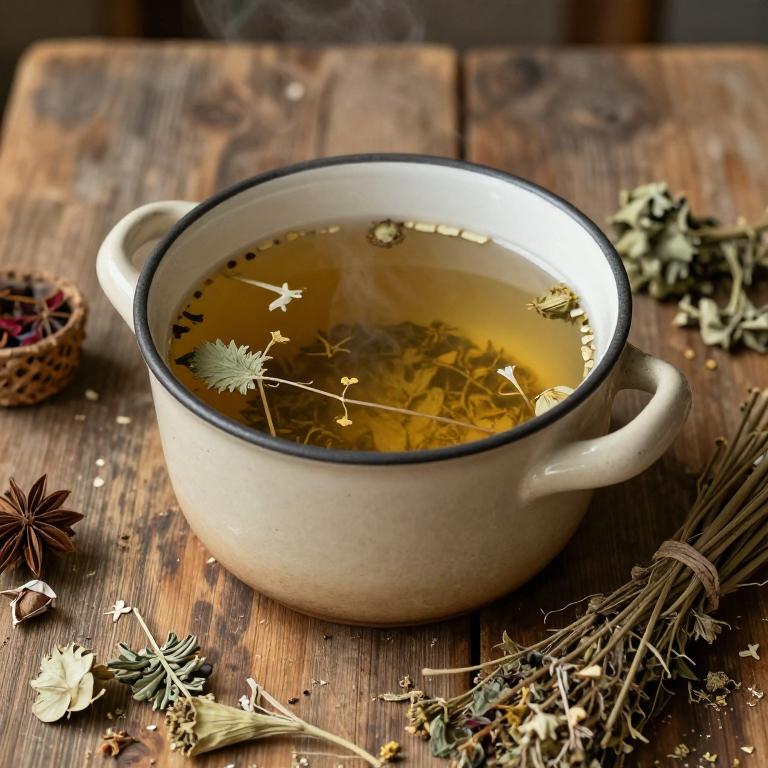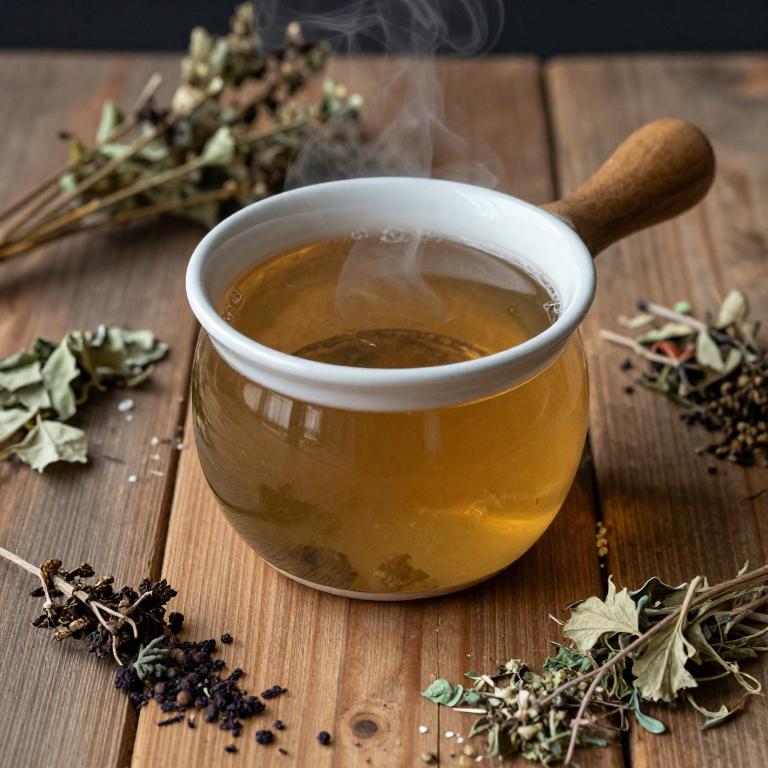10 Best Herbal Decoctions For Hiccups

Herbal decoctions have been traditionally used to alleviate hiccups by addressing the underlying causes such as gastrointestinal discomfort or nervous system irritation.
Common herbs like ginger, fennel, and cardamom are often included in these decoctions due to their carminative and antispasmodic properties. To prepare a decoction, the herbs are typically simmered in water for an extended period to extract their active compounds. Drinking the warm herbal infusion can help soothe the diaphragm and reduce the frequency of hiccups.
While generally safe, it is advisable to consult a healthcare provider before using herbal remedies, especially for prolonged or persistent hiccups.
Table of Contents
- 1. Ginger (Zingiber officinale)
- 2. Cumin (Cuminum cyminum)
- 3. Fennel (Foeniculum vulgare)
- 4. Ceylon cinnamon (Cinnamomum verum)
- 5. Peppermint (Mentha piperita)
- 6. Long pepper (Piper longum)
- 7. Parsley (Petroselinum crispum)
- 8. Black pepper (Piper nigrum)
- 9. Licorice (Glycyrrhiza glabra)
- 10. Potato (Solanum tuberosum)
1. Ginger (Zingiber officinale)

Zingiber officinale, commonly known as ginger, has been traditionally used in herbal medicine to alleviate hiccups due to its carminative and antiemetic properties.
Herbal decoctions made from fresh or dried ginger root are often prepared by boiling the rhizome in water to extract its active compounds, such as gingerols and shogaols, which may help relax the diaphragm and reduce the frequency of hiccups. These decoctions are typically consumed in small quantities, either as a warm tea or added to other herbal formulations for enhanced efficacy. While anecdotal evidence supports their use, more clinical studies are needed to fully establish their effectiveness for treating hiccups.
Nonetheless, ginger remains a popular and accessible remedy for mild, occasional hiccups in many traditional and complementary medicine practices.
2. Cumin (Cuminum cyminum)

Cuminum cyminum, commonly known as cumin, has been traditionally used in herbal medicine for its potential to alleviate hiccups.
The seeds of this spice are often prepared into a decoction by boiling them in water, which allows the release of active compounds such as essential oils and flavonoids. This herbal decoction is believed to help relax the diaphragm and reduce the spasmodic contractions that cause hiccups. In traditional systems like Ayurveda and Chinese medicine, cumin is valued for its digestive and carminative properties, which may support overall gastrointestinal health.
While more scientific research is needed, some anecdotal evidence suggests that cumin decoctions may offer a natural and soothing remedy for persistent hiccups.
3. Fennel (Foeniculum vulgare)

Foeniculum vulgare, commonly known as fennel, has been traditionally used in herbal medicine to alleviate hiccups due to its carminative and antispasmodic properties.
A decoction of fennel seeds is often prepared by simmering the dried seeds in water for several minutes, allowing the essential oils and active compounds to infuse into the liquid. This herbal remedy is believed to relax the diaphragm and reduce the spasms that cause hiccups. The volatile oils in fennel, such as anethole, are thought to act on the gastrointestinal tract, soothing irritation and promoting smooth muscle function.
While generally considered safe, it is advisable to consult a healthcare professional before using fennel decoctions, especially for prolonged or persistent hiccups.
4. Ceylon cinnamon (Cinnamomum verum)

Cinnamomum verum, commonly known as true cinnamon, has been traditionally used in herbal medicine for its soothing properties, including the treatment of hiccups.
Herbal decoctions made from cinnamon bark are believed to help alleviate hiccups by relaxing the diaphragm and reducing spasms in the respiratory tract. To prepare the decoction, cinnamon sticks or ground bark are simmered in water for several minutes, allowing the active compounds to infuse into the liquid. This remedy is often consumed in small amounts, either as a warm drink or added to other herbal teas.
While anecdotal evidence supports its effectiveness, more scientific research is needed to fully validate its role in treating hiccups.
5. Peppermint (Mentha piperita)

Mentha piperita, commonly known as peppermint, has been traditionally used in herbal medicine to alleviate symptoms such as hiccups.
Peppermint herbal decoctions are prepared by steeping fresh or dried leaves in hot water, creating a soothing and aromatic infusion. The menthol and other volatile compounds in peppermint may help relax the diaphragm and reduce the spasms that cause hiccups. While scientific evidence supporting its efficacy for hiccups is limited, many people find relief through its calming and antispasmodic effects.
As with any herbal remedy, it is advisable to consult a healthcare professional before use, especially for individuals with underlying health conditions or those taking medications.
6. Long pepper (Piper longum)

Piper longum, commonly known as black pepper, has been traditionally used in herbal medicine for its potential to alleviate hiccups.
The active compounds in Piper longum, such as piperine and volatile oils, are believed to stimulate the vagus nerve, which can help regulate the diaphragm and reduce the frequency of hiccups. A herbal decoction of Piper longum is typically prepared by boiling the dried fruit in water for several minutes, then straining and consuming the liquid. This method allows for the extraction of beneficial compounds that may aid in soothing the nervous system and easing spasmodic contractions.
While some anecdotal evidence supports its use, more scientific research is needed to fully validate its efficacy for treating hiccups.
7. Parsley (Petroselinum crispum)

Petroselinum crispum, commonly known as parsley, has been traditionally used in herbal medicine for its potential to alleviate hiccups.
The herb contains compounds such as apiol and limonene, which may help relax the diaphragm and reduce the spasms that cause hiccups. A herbal decoction made from fresh or dried parsley can be prepared by simmering the leaves in water for several minutes. This decoction is often consumed in small quantities to soothe the nervous system and ease the persistent coughing associated with hiccups.
While scientific evidence is limited, many people find relief from hiccups using parsley-based remedies as a natural alternative to conventional treatments.
8. Black pepper (Piper nigrum)

Piper nigrum, commonly known as black pepper, has been traditionally used in herbal medicine for its potential to alleviate hiccups.
The active compounds in black pepper, such as piperine, may help stimulate the vagus nerve, which can reduce the frequency of hiccups by regulating the diaphragm's spasms. To prepare a herbal decoction, a few crushed black pepper seeds are boiled in water for several minutes, then strained and consumed in small doses. This method is believed to enhance digestion and ease respiratory discomfort associated with hiccups.
While anecdotal evidence supports its use, further scientific research is needed to fully understand its efficacy and safety in treating hiccups.
9. Licorice (Glycyrrhiza glabra)

Glycyrrhiza glabra, commonly known as licorice root, has been traditionally used in herbal medicine for its potential to alleviate hiccups.
Herbal decoctions made from licorice root are believed to soothe the respiratory tract and relax the diaphragm, which may help reduce the frequency and intensity of hiccups. The active compounds in licorice, such as glycyrrhizin and flavonoids, may contribute to its antispasmodic and anti-inflammatory effects. While some studies suggest licorice may have mild therapeutic properties for hiccups, it is important to use it in moderation due to its potential side effects, including hypertension and fluid retention.
As with any herbal remedy, it is advisable to consult a healthcare professional before using licorice root decoctions for persistent or severe hiccups.
10. Potato (Solanum tuberosum)

Solanum tuberosum, commonly known as the potato plant, has been traditionally used in herbal medicine for various ailments, including the treatment of hiccups.
While the tuber itself is widely consumed as food, certain parts of the plant, such as the leaves and roots, have been explored for their potential medicinal properties. Herbal decoctions made from Solanum tuberosum are believed to act through its alkaloidal and anti-inflammatory components, which may help in reducing the spasmodic contractions of the diaphragm associated with hiccups. However, it is important to note that the use of Solanum tuberosum for hiccups is not well-documented in modern scientific literature, and caution is advised due to the plant's potential toxicity.
As with any herbal remedy, it is recommended to consult a healthcare professional before using Solanum tuberosum for treating hiccups.